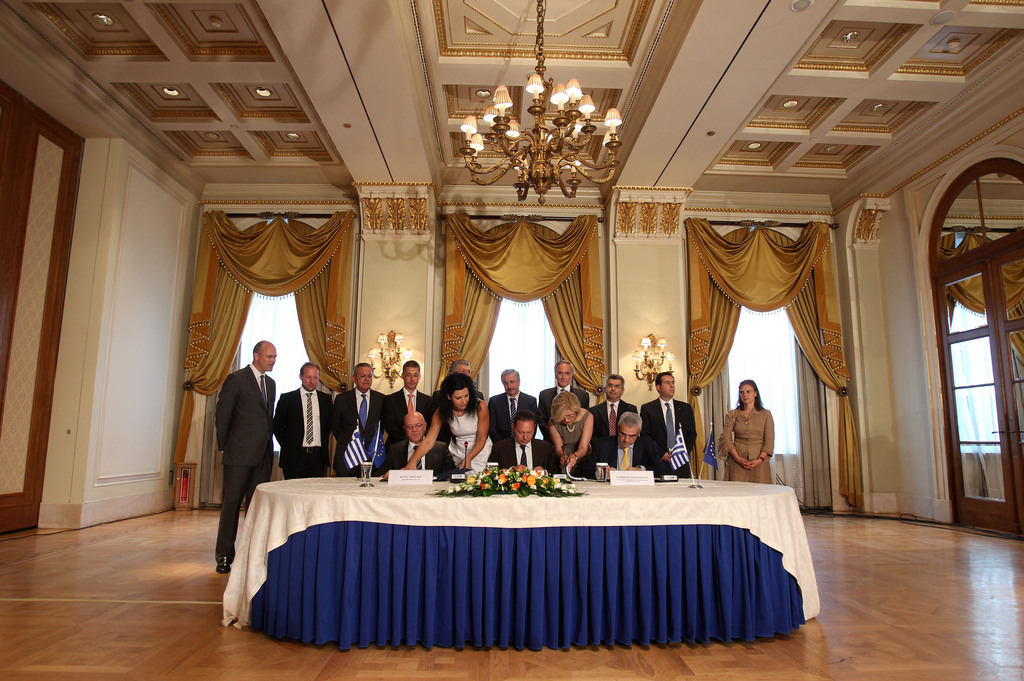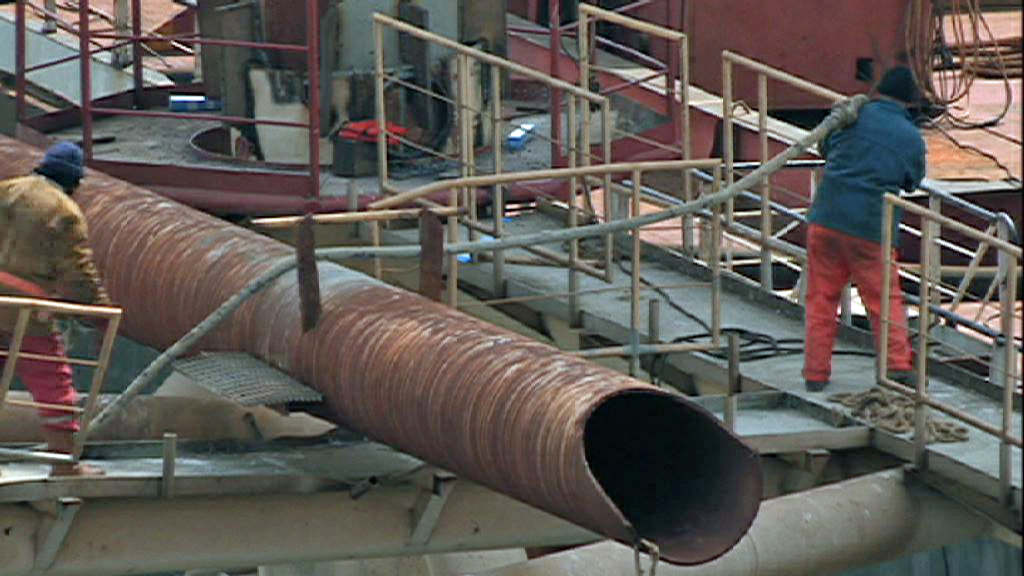
TAP gas pipeline causes controversy

Critics in Switzerland have raised questions over a project, which has the backing of the Swiss energy company Axpo, to build a pipeline to bring gas from the Caspian Sea into central Europe.
The Trans Adriatic Pipeline (TAP) is seen as an important geostrategic deal for the European Union, which is trying to move away from its dependence on Russian gas.
“This project is important for Switzerland as we are dependent on oil and gas. The new pipeline will boost the security of supply, and, moreover, a Swiss company is taking part,” said Swiss Economics Minister Johann Schneider-Ammann on June 28, after the deal was announced.
Axpo is one of three companies behind the TAP. It holds a 42.5 per cent share in the pipeline, with Norway’s Statoil and the German firm E.ON, holding 42.5 per cent and 15 per cent respectively. Their successful bid, which saw off its rival Nabucco West, follows years of intensive negotiations with the developers of the Shah Deniz II gas field and the Azeri authorities.
The Trans Adriatic Pipeline project between the Caspian Sea and central Europe has been designated a “Project of Common Interest” by the EU with the aim of diversifying gas supply.
The methane will be extracted offshore in Azerbaijan by the Shah Deniz II consortium which is made up of seven oil and gas producers, including the British BP, the Norwegian Statoil, the Azeri SOCAR and the French Total.
Azerbaijan and Turkey signed an agreement in 2012 on the construction by 2018 of the Trans Anatolian Pipeline (TANAP), to regulate the transport of the gas over their territory.
On June 28 it was announced that the Shah Deniz II consortium had chosen the TAP over its rival Nabucco West, which would have gone through Bulgaria, Romania, Hungary and Austria.
A new gas corridor
The TAP pipeline, which should be finished by 2019, will cost an estimated SFr5 billion ($5.3 billion). It will transport 10-20 billion cubic metres of Azeri gas annually over 800 kilometres from Turkey to Italy, which will then distribute the gas to other European countries. Italy, as well as the pipeline transit countries Greece and Albania, are all expecting a boost in investments and jobs as a result.
The project has also been hailed by the EU, with Commission President José Manuel Barroso calling it “a milestone in strengthening the energy security of our union”. The EU had first mooted opening a new gas corridor towards the south back in the 1990s as a way of reducing dependency on Russian gas.
“The new pipeline allows for the diversification of gas supply paths and thus definitely represents a gain in terms of security of supply in Europe,” said Jonas Grätz, a researcher at the Center for Security Studies at the Swiss Federal Institute of Technology Zurich.
But questions remain over the stability of the region through which the pipeline will pass. “There are several conflicts in this region. For example, there is the Kurdish revolt in Turkey and the tension between Azerbaijan and Armenia after the Nagorno-Karabakh War twenty years ago,” explained Grätz.
The most serious threats to the energy infrastructure comes so far from the Kurdistan Workers’ Party (PKK), but the launch of the peace process between the PKK and Ankara could lead to a lessening of these threats, he added. “But the situation in Turkey and the South Caucasus seems much more stable than in some Middle Eastern countries from which Europe also imports gas and oil.”

More
Swiss to help build European gas pipeline
Market outlook
Questions have also been raised about the market outlook. “Current conditions for using gas to produce electricity are not very favourable. Coal costs a lot less,” said Daniel Bächtold, spokesman of the Swiss Gas Industry Association. “In Italy… some gas plants are already inactive because they are not profitable.”
“There are also several other gas pipeline projects in Europe, including the new South Stream pipeline and the widening of the North Stream from two to four channels to transport gas from Russia,” he added. “Nowadays we are witnessing a real ‘gas fever’, but you have to ask yourself if all these pipelines can be fully utilised and if there will be enough consumers.”
Urs Meister, energy issues expert at the Avenir Suisse think tank, is also sceptical. “The TAP project was launched around a decade ago in a different economic and energy policy context. The new pipeline could be profitable but there are many risks because it’s difficult to predict Europe’s future needs.”
The hopes for the new pipeline’s profitability are bound up with Europe’s new energy strategy. Several countries, including Switzerland, are planning to move away from nuclear energy. Fossil fuels will be needed to plug the energy gap over the next decades, with many preferring gas over oil and coal.
“Many European energy scenarios consider gas the best partner for renewable energies to guarantee supply. Gas plants can cover electricity needs when there is not enough sun or wind,” said Grätz. “At the moment several countries, like Germany, are using coal-fired plants instead, but gas could increasingly replace coal because it can be used more flexibly and produces fewer CO2 emissions.”
Meister said that it has been suggested that gas could play an important role in the global energy mix over the next 20 years, with a rise in imports from other continents.
“These predictions remain uncertain as they depend on many factors, including economic development,” he warned.
Axpo itself has expressed its own reservations, with its chief executive Heinz Karrer telling a Sunday newspaper that it wanted to reduce its stake in the pipeline to 10 per cent. This could lead the company to get back most of the more than CHF80 million that it has invested in the project so far.
Natural gas accounts for more than 20 per cent of world energy consumption. According to the International Energy Agency, this should rise to 25 per cent over the next 20 years.
In Switzerland gas covers 12 per cent of energy needs and it comes mostly from Norway, Russia, Germany and Algeria.
(translated from Italian by Isobel Leybold-Johnson)

In compliance with the JTI standards
More: SWI swissinfo.ch certified by the Journalism Trust Initiative































You can find an overview of ongoing debates with our journalists here . Please join us!
If you want to start a conversation about a topic raised in this article or want to report factual errors, email us at english@swissinfo.ch.